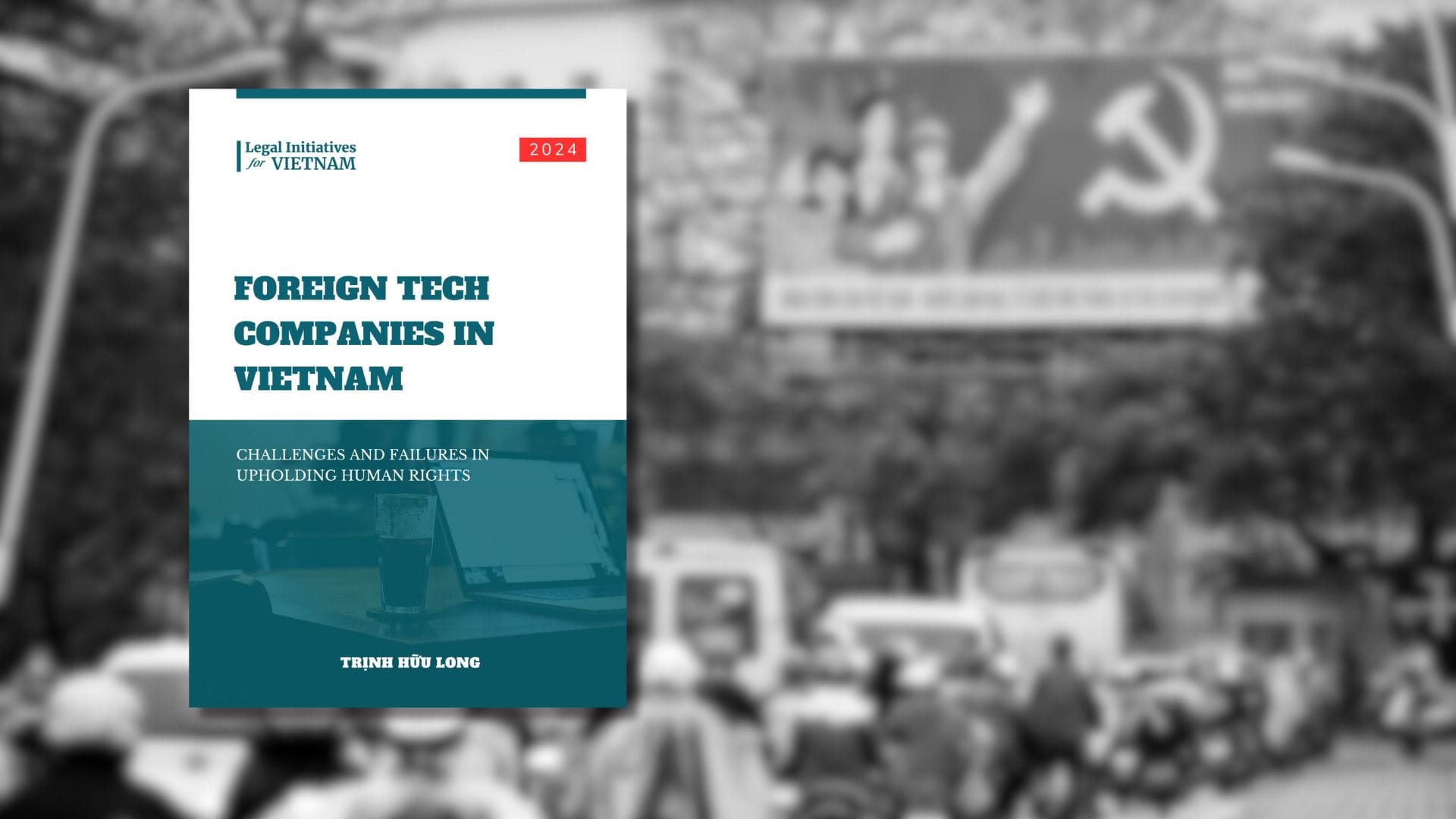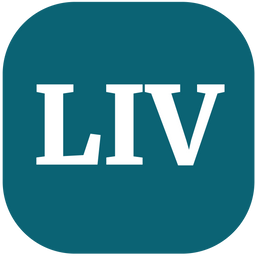Once upon a time, foreign social networks like Facebook and YouTube were channels where independent news and information flowed relatively freely into Vietnam’s highly repressive society. Activists used them to mobilize the public and organize social movements, journalists thrived on them to disseminate uncensored content, and ordinary citizens leveraged them to hold government officials accountable.
Those days are long gone.
Today, Legal Initiatives for Vietnam releases a new report, “Foreign Tech Companies in Vietnam: Challenges and Failures in Upholding Human Rights,” to shed light on how foreign tech companies have faced increasing pressure from the Vietnamese government regarding content moderation, user data access, and online discussion manipulation. The report also highlights these companies’ failures to address these issues in line with international human rights standards, effectively contributing to the development of digital authoritarianism in Vietnam.
In this report, LIV investigates the operations of major foreign tech companies in Vietnam to assess their human rights policies and practices regarding freedom of expression and the right to privacy. The report aims to contribute to the broader discussion on the tech sector’s human rights responsibilities in authoritarian contexts, identifying challenges and recommending policies and practices aligned with international human rights law.
The report begins by introducing the political and legal context of Vietnam, a market-Leninist regime where the authoritarian government, led by the Vietnamese Communist Party, embraces an open and competitive market economy. While this political regime, governing a population of 100 million, offers attractive business opportunities, it also poses significant risks to businesses, including the tech sector.
Readers will find a detailed account of the laws and regulations impacting foreign tech companies, including the Law on Information Technology, the Law on Cybersecurity, Decree 72/2013/NĐ-CP, Decree 15/2020/NĐ-CP, Decree 53/2022/NĐ-CP, and Decree 13/2023/NĐ-CP. These laws not only heavily restrict Vietnamese citizens from exercising free speech online by criminalizing online speech but also compel tech companies to cooperate extensively with the government in moderating content and providing access to users’ data. As the report demonstrates, Vietnam’s Internet governance is based on a legal system intentionally designed to be vague and overbroad, allowing for arbitrary interpretation and actions by the state. Often, these regulations and actions do not meet the Three-Part Test under the United Nations’ International Covenant on Civil and Political Rights (ICCPR).
Additionally, the report examines a draft decree on Internet governance expected to be issued in 2024, which will play a central role in controlling the Internet in Vietnam. The drafters explicitly aim to force social networks, regardless of the platforms’ nationality, to verify users’ identities if they wish to continue operating in Vietnam. Combined with other regulations, this draft decree puts Vietnamese users at risk of having their real identities exposed to the authorities.
The core part of the report provides a detailed account of how major foreign tech companies such as Meta/Facebook, Google, Netflix, TikTok, and Apple handle legal requirements and government requests on online speech and users’ data.
Our findings show a concerning situation where these companies almost always comply with an increasing number of content moderation requests from the Vietnamese government, with the compliance rate consistently above 90% over the years, including geographical restrictions and content removals. At the same time, the government and some tech companies acknowledge that a significant portion of the restricted or removed content is government criticism, which is protected speech under international human rights law. Notably, Meta even maintains a secret list of Vietnamese Communist Party’s officials who are immune from criticism on their platform, Facebook.
Regarding users’ data, our findings demonstrate a positive practice by the companies, with a very low number of government requests being complied with. Additionally, these companies—with the exception of TikTok, for which we lack evidence on the location of Vietnamese users’ data—consistently store users’ sensitive data outside the country while maintaining cache servers in Vietnam where non-sensitive users’ data is processed.
The report also highlights an alarming trend of the Vietnamese government deploying cyber troops and trolls to manipulate online discussions, spread disinformation, and make false reports on platforms such as Facebook and YouTube. The government-backed Force 47’s and Task Force 35’s operations have been overwhelmingly effective in manipulating Facebook and YouTube, targeting government critics, including human rights defenders and marginalized communities, while these platforms have taken almost no concrete actions to prevent them.
However, the report also shows instances of foreign tech companies clashing with the government, indicating both a significant resistance to the government’s illegitimate requests and their inability to fully comply with these requests. Facebook notably suffered a severe traffic slowdown in early 2020 due to government intervention and could only restore normal operations after agreeing to censor more political content. Other tech companies have faced major pressure from the government to open local offices and allow government inspectors access.
Although the report focuses on foreign tech companies’ operations, it also provides examples of how Vietnamese users are punished criminally and administratively by the government. These examples should inform the companies about the costs their users must pay to exercise basic human rights.
Finally, the report offers a list of recommendations for both foreign tech companies and governments to improve human rights policies and practices in the tech sector. Recommendations for tech companies include resisting the government’s illegitimate requests for content moderation and user data, implementing end-to-end encryption to protect user data, removing government-backed forces that manipulate platforms, being more transparent in handling government requests, and supporting nonprofits and human rights defenders. For governments, the recommendations include enforcing existing treaties with the Vietnamese government to ensure a free and open Internet, introducing more human rights-friendly legislation, and holding tech companies accountable for their overseas human rights practices.
Thank you for your attention.
We hope you will find the report useful, and we appreciate any feedback.
Contacts:
- Trần Quỳnh Vi, Executive Director, vi.tran@liv.ngo.
- Trịnh Hữu Long, Editor-in-Chief, author, long.trinh@liv.ngo.
Learn more about LIV:


